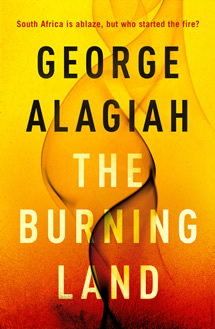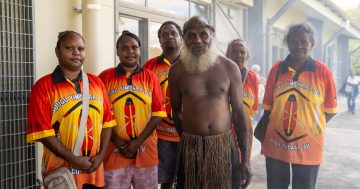Reviewed by Robert Goodman.
By George Alagiah, Allen and Unwin.
 BBC journalist George Alagiah brings has considerable knowledge to bear on his first work of fiction, a book that seeks to take the lid off the exploitation of Africa. While set in South Africa and very specifically about the history and circumstances of that country, he implies that the systemic corruption that he writes about is rife across the continent. The story he tells just has an extra layer of irony and tragedy given the struggle that the current leadership had for power.
BBC journalist George Alagiah brings has considerable knowledge to bear on his first work of fiction, a book that seeks to take the lid off the exploitation of Africa. While set in South Africa and very specifically about the history and circumstances of that country, he implies that the systemic corruption that he writes about is rife across the continent. The story he tells just has an extra layer of irony and tragedy given the struggle that the current leadership had for power.
Kagiso Rapabane is an ex-public servant who has turned his back on the government to work for a small non-government organisation called Soil for Africa. His concern is the way in which African farms are being sold off to international interests at the expense of local farmers and farm workers. But he is also involved in a more extremist group seeking to derail the international deals. When Lesedi Monlantshe, the son of a major businessman and hero of the struggle against apartheid involved in these land deals, is found dead after meeting with Kagiso, the country explodes. Long held xenophobic tensions aimed at impoverished Mozambican workers boil over and the country is thrown into chaos. Into this chaos comes Lindi Seaton, a white South African whose family left many years before and who works for an organisation called South Trust, which has been set up to mediate in global crises. Lindi already has connections not only to Kagiso but also to one of the UK representatives of a company involved in the illegal land deals.
What sounds like a lengthy set-up plays smoothly on the page. Alagiah gives a real sense of the complexity of modern South African life from the perspective of these and other point of view characters. Everyone has a history that informs the way they see the modern South Africa but also how they are treated by others. Lindi, because she is white, Kagiso because he is black but was supported by a white family, Lesedi who was brought up by his mother to be a revolutionary while his father used his power and contacts to enrich himself.
Alagiah saves his most acerbic observations for the current South African elite. Politicians and businessmen who came into their power through their prominence in the struggle against apartheid but who now live in the lap of luxury. And for their children, who never had to struggle at all, now coming into power and with no feeling for the millions of impoverished townspeople who their parents fought for but whose lot has not changed under the new regime.
All of this packaged into a pacey thriller in which the danger seeps from every page. In particular Lindi’s trip north from Johannesburg on a bus full of Mozabican refugees is harrowing, moreso because it has a ring of truth to it. The revelations, when they come, are tinged with the tragedy that follows when people with are unable to communicate.
The Burning Land, for all of its fictional trappings has the ring of truth to it. Alagiah, informed very much by his journalistic instincts, writes believable characters and finds the core of the story to drive home his message and deliver a timely, but engaging thriller.
This and over 450 more reviews can be found on Pile by the Bed.











